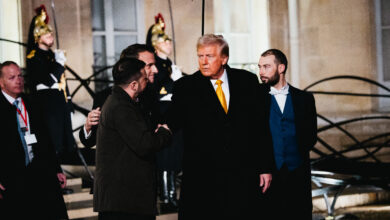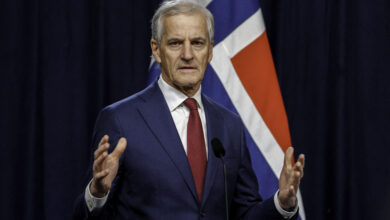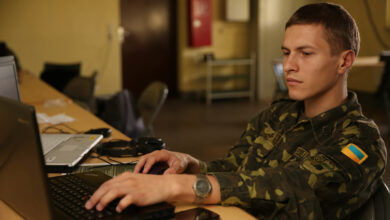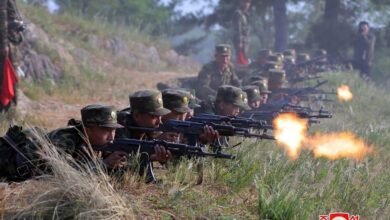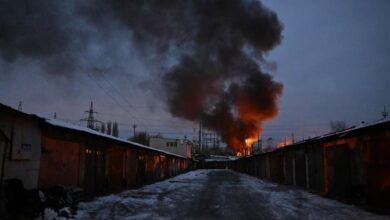Russian President Vladimir Putin on Wednesday surveyed drills carried out by his nuclear-capable forces as Moscow pressed unfounded claims to India and China that Ukraine was developing a “dirty bomb.”
The drills are the latest in a series of escalatory comments from Moscow and Putin — who observed the drills from a control room — that the eight-month conflict in Ukraine could turn nuclear.
“Under the leadership of… Vladimir Putin, a training session was held with ground, sea and air strategic deterrence forces, during which practical launches of ballistic and cruise missiles took place,” the Kremlin said in a statement.
Russian state-run media ran footage of a submarine crew preparing the launch of a Sineva ballistic missile from the Barents Sea in the Arctic.
The drills also included launching test missiles from the Kamchatka peninsula in the Russian Far East.
Footage of the drills across state media came after Russia’s Defence Minister Sergei Shoigu pressed ahead with telephone calls to his counterparts globally, claiming that Ukraine was developing a “dirty bomb.”
Shoigu, who has made these claims in recent days to counterparts from NATO countries, reiterated them to his Chinese counterpart Wei Fenghe on Wednesday.
Moscow Alleges ‘Irresponsible Behavior’
Shoigu also voiced the same “concerns” in a phone with India’s Defence Minister Rajnath Singh earlier on Wednesday, Moscow said.
Ukraine has dismissed the allegations as “absurd” and “dangerous,” suggesting the claims could be cover for Russia’s own plans on the battlefield, as have its western allies, including Britain, France, and the United States.
A dirty bomb is a conventional bomb laced with radioactive, biological, or chemical materials which are disseminated in an explosion.
Kremlin spokesman Dmitry Peskov told reporters earlier Wednesday that Russia had information pertaining to the “existing threat” of Ukraine using a “dirty bomb” and that Kyiv was “preparing for such a terrorist act of sabotage.”
He added: “We will continue vigorously bringing our point of view to the world community to encourage them to take active steps to prevent such irresponsible behaviour.”
Nuclear rhetoric from Russia began building in September when Moscow said it was annexing four regions of Ukraine over which its forces have partial control. Putin warned Russia could use nuclear weapons to defend them.
Advance on Kherson
One of those regions is Kherson, in southern Ukraine near Moscow-annexed Crimea, where Kyiv has been clawing back territory since a counter-offensive it announced at the end of the summer.
Russian-backed authorities in recent days urged residents to flee what they say is an oncoming onslaught. They claimed to have turned the city of Kherson into a “fortress,” vowing to defend it at all costs.
A Moscow-installed official in the region, Vladimir Saldo, said Wednesday that at least 70,000 people have left their homes within the last week.
Ukraine’s capture of the Kherson region would give Kyiv back important access to the Sea of Azov. It would also cut off Moscow’s land bridge to Russian-annexed Crimea.
Saldo banned entry to the right bank area of the region for a period of seven days “due to the tense situation on the contact line,” according to a statement on his social media on Wednesday.
Russia’s offensive to capture Ukrainian territory spurred a wave of international solidarity with Kyiv, including hundreds of foreigners who volunteered to help fend off Russian advances.
Kyiv said Wednesday that Russia had returned the remains of US citizen Joshua Alan Jones, who was killed fighting Moscow’s forces in August, along with 10 Ukrainian servicemen in a prisoner swap.





